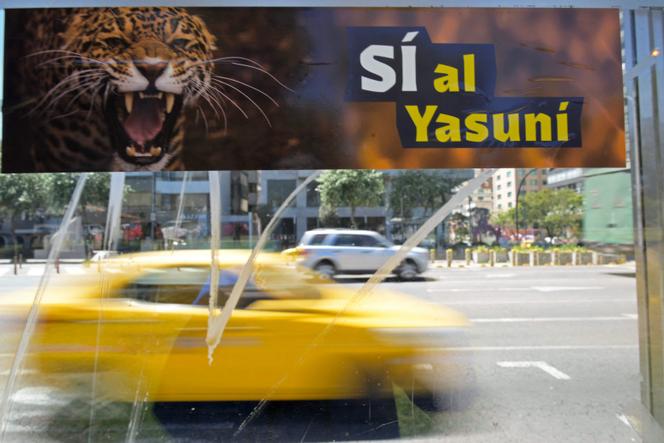


Ecuadorans have chosen to stop drilling for oil in an Amazon reserve, according to the results of a referendum held on Monday, August 21, and hailed as a historic example of climate democracy. The "yes" vote to halt the exploitation of an oil block in the Yasuni National Park, one of the most diverse biospheres in the world, won by 59%, with 98% of votes tallied by the election body.
After years of demands for a referendum, the country's highest court authorized the vote in May to decide the fate of "block 43," which contributes 12% of the 466,000 barrels per day produced by Ecuador.
The block is situated in a reserve which is home to three of the world's last uncontacted Indigenous populations – the Waorani and Kichwa tribes, as well as the Tagaeri, Taromenane and Dugakaeri – and a bounty of plant and animal species.

Drilling began in 2016 after years of fraught debate and failed efforts by then-president Rafael Correa to persuade the international community to pay cash-strapped Ecuador $3.6 billion not to drill there. The Amazon basin – which stretches across eight nations – is a vital carbon sink.
The fate of the reserve has drawn the attention of celebrities such as Hollywood star and environmental activist Leonardo DiCaprio. "With this first-of-its-kind referendum worldwide, Ecuador could become an example in democratizing climate politics, offering voters the chance to vote not just for the forest but also for Indigenous rights, our climate, and the well-being of our planet," he wrote on Instagram this month.
Swedish climate campaigner Greta Thunberg also hailed the "historic referendum."
The NGO Amazon Frontlines said the vote was a "demonstration of climate democracy, where people, not corporations, get to decide on resource extraction and its limits."
Locals in Yasuni were divided, with some supporting the oil companies and the benefits that economic growth have brought to their villages.
The government of outgoing President Guillermo Lasso has estimated a loss of $16 billion over the next 20 years if drilling is halted. National oil company Petroecuador had permission to exploit 300 hectares, but says it is only using 80 hectares.
